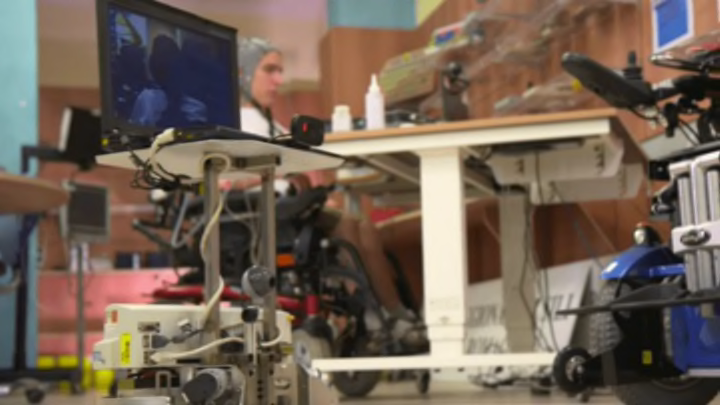Individuals with paralysis or other physical disabilities that limit their range of motion may not be able to leave their homes to visit other people without someone else’s help, often leading to extreme cases of depression and loneliness. Since 2008, researchers at the Defitech Foundation Chair in Brain-Machine Interface at the Swiss Federal Institute of Technology in Switzerland have been developing new technology that would combat this exact problem.
Led by José del R. Millán, the team has created a brain-controlled robot that can translate a disabled user’s thought commands into movements, allowing the user to communicate with people in another location in real time through a video camera, screen, and Skype.
In order for the user to direct the robot, they wear an electrode-studded hat that can analyze their brain signals and understand directions like “turn left,” “turn right,” and “go forward.” And even without commands, the robot knows to wheel around objects, and will continue in one direction unless it’s told otherwise.
During the testing phase, 19 people—nine who were disabled and 10 who were not—from Switzerland, Germany, and Italy were responsible for remotely leading the robot around the lab. According to Millán, training the subjects took less than 10 days, and there was a 100% success rate from all 19 subjects.
While the results are promising, Millán isn’t ready to guarantee that the robot will become widely available, saying “For this to happen, insurance companies will have to help finance these technologies.”
The results of the research project called TOBI (Tools for Brain-Computer Interaction) were published in the June issue of Proceedings of the IEEE.
[h/t Science Daily]
